Freedom or Autonomy: Which way Sovereign Man?
Pt. 1 of the mini-essay series on Freedom & Governance
I no longer believe in freedom… Or at least, I don’t believe we should place it above all else, as the highest value or virtue.
I did co-write The Uncommunist Manifesto: a message of hope, liberty and responsibility - and I stand by most everything in it. But as we all do, I’ve grown a little older and my views too have evolved or more accurately, matured, accordingly.
This is the first in a series of four mini-essays on why I’ve moved beyond freedom, libertarianism and the economically-sound Rothbardian anarcho-capitalism… and what I think comes next.
What is Freedom?
The question may seem ridiculous at first, but the words ‘freedom’ and ‘liberty’ have been so overused for so many different things, by so many different people, that they’ve lost their charge. People get attached to them as concepts but rarely stop to think deeply about what they actually imply.
Ask someone to define positive and negative freedom, for example: most will have no idea what you’re talking about.
What they understand by ‘being free’ is most often something like ‘not being bothered,’ ‘being left alone’ or ‘not being judged,’ or ‘being able to do whatever’. This is lazy non-thinking, done by unconscious NPCs parroting what some anon said on Twitter, but also by most people nowadays, because it’s not comfortable to think about what these things really mean.
When they talk about freedom or liberty, what most people actually mean is unaccountability and freedom from consequences, beneath which ultimately lies a desire for comfort and safety, which, unbeknownst to them, are the twin sisters of societal decay (a topic for another time).
The truth is they’re deathly afraid to uncover is that true freedom has very little to do with comfort or safety, but with something else more demanding and uncertain. True freedom can only come from responsibility, and the degree to which you are free is directly tied to the degree to which you are responsible—something that is neither comfortable nor “safe,” at least not in the conventional sense.
The truth burns a little more still when you realize that your sphere of responsibility maps onto your sphere of influence. There are many things you have neither influence or power over and, as such, you have no real freedom in those domains. You are not free from the laws of physics, from your biological limitations or to a large degree, from societal norms. For most people, their entire moral framework is inherited, either from their kin, society, their teachers, the news or whatever they consoom on social media.
It takes a special kind of person, with a high degree of agency to transcend these categories, and even then, unless you’re Superman, things like physics will remain outside of your influence or control forever.
So what does this mean?
Agency & Autonomy
In my personal journey away from freedom maximalism, I came to realize that freedom is not the right thing to prioritize or aspire to. Like happiness, it’s a state we all value, but it’s not a purposeful end in itself. Freedom, much like happiness, is a byproduct—you don’t achieve it by chasing it directly. And just as happiness is more meaningful when earned, so too is freedom (and idea that likely already resonate with many of you).
What you may not have considered, however, is that freedom, like happiness, is a value not a vitrue. Values differ from virtues in that the former are passive while the latter are active. The former are things you experience when you act in accordance with the latter. You experience happiness through making progress, just as you experience freedom through making choices (whether that choice is to take ownership and responsibility, or to let go and surrender).
This understanding led me to a deeper realization: freedom itself is almost a passive state, while agency and responsibility are active forces. You may value freedom, but attaining it requires deliberate action—action that demands responsibility and ownership.
This is where autonomy comes into the picture. Autonomy is conceptually a blend of freedom and responsibility. It is the ability (and freedom) to choose, combined with the courage (and responsibility) to own the consequences of those choices.
Maturing is coming to realise that you don’t actually want maximum freedom. What you really want is maximal agency and autonomy:
Agency is the drive and ability to act. You either act or you re-act, and responsibility is fundamental for agency. Few people actually have this. Most normies are reactive NPCs, no more sentient than a Roomba vacuum cleaner.
Autonomy is similar to freedom but implies agency, a sort of self-assertion as opposed to the inertia or indolence often implied by freedom. It comes from self + rule: it is self-governance and mastery of oneself.
Of course, underneath it all is responsibility (contrast that with the desire for safety and comfort beneath normie’s and liberal’s desires to be unaccountably free).
There are entire chapters on the etymology, psychology, philosophy and energy of Responsibility in The Bushido of Bitcoin, so I’ll just say this: it is not only that without it, true and lasting freedom is not possible; but without Responsibility you are at best a child… and at worst, a slave (the one who has no real freedom).
Unbound freedom, the freedom from consequences and irresponsibility will make you weak, and at scale will turn society into a blob. This is precisely why we are where we are today. Surrounded on all sides by kidults and perpetual adolescents more desirious of the cheap, comforting crumbs of liberalism than noble heights of responsibility.
That all being said, if you’re reading this, you are part of a change that is gaining momentum. The desire for ‘becoming noble’ (h/t
) is slowly bubbling up to the surface as evidenced by the rise of incredibly well-written Substacks (see my recommendations list). This gives me a lot of hope for the future.One final thought on this topic before I close out.
Ultimate freedom is death
When taken to the extreme, freedom becomes not only impractical but also… empty.
Freedom from responsibility, freedom from public perception and societal norms, freedom from pain and struggle, freedom from your body, freedom from your mind, freedom from life. Freedom from yourself.
This is exactly what suicidal people seek. Release.
Freedom, taken to the ultimate extreme is, in fact, death.
While there is a time and place for death - and we must face that moment with all the courage we can muster - if you’re going to choose life, you must choose agency. You must take on as much responsibility as possible. You must find people to bind yourself to (marriage, brotherhood, family), and worthwhile things to strive for (mission, vocation, legacy).
Agency is the spark of life, and autonomy is the goal of a well formed adult. Freedom is just the by-product feeling of these two qualities.
So which way Western Man?
Will you act and take on the responsbility to rebuild civilization?
Or will you chase cheap freedom and settle for fleeting happiness, because it’s more convenient, comfortable and safe?
In Part 2 of this series I will discuss why, following my rejection of freedom as a virtue and framework for life, I have reconsidered the viability of libertarianism and even anarcho-capitalism as viable governance options. Join me next week.
Aleksandar Svetski
I’ll be doing more of these short-form essays as I explore the core themes from The Bushido of Bitcoin and prepare to write the second book in the Bushido series: The Metaphysics of War & Beauty.
If you’re interested in this kind of content, subscribe and share this with anyone you think might also find it valuable.
And if you want to support my work, please pick up a copy of The Bushido of Bitcoin on Amazon, or directly from me for Bitcoin.


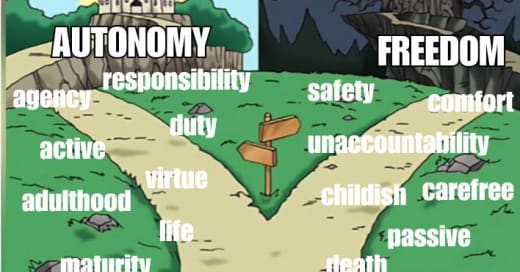



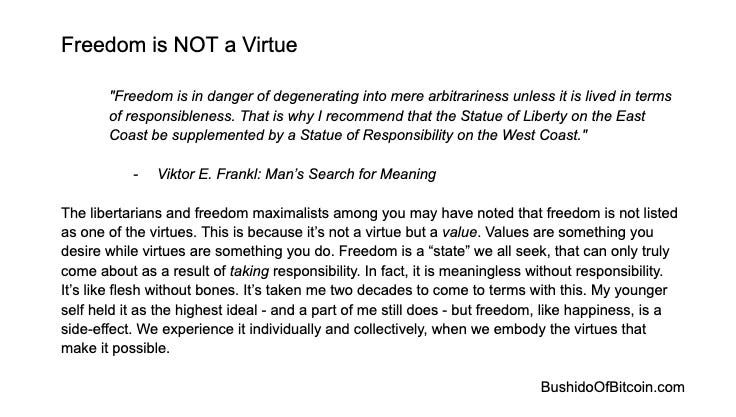
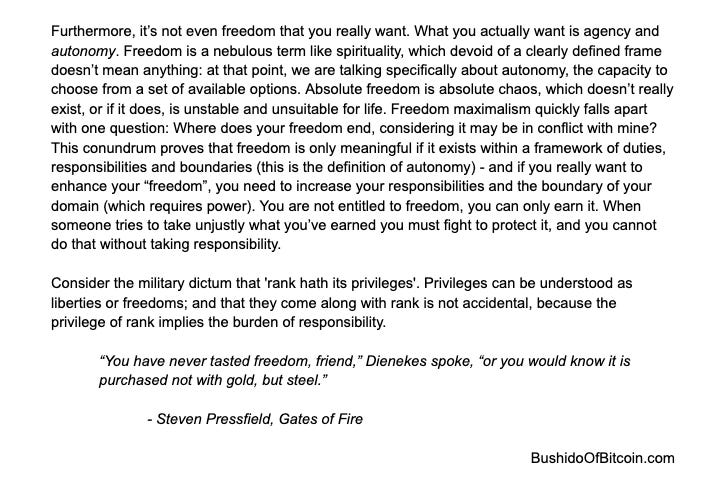
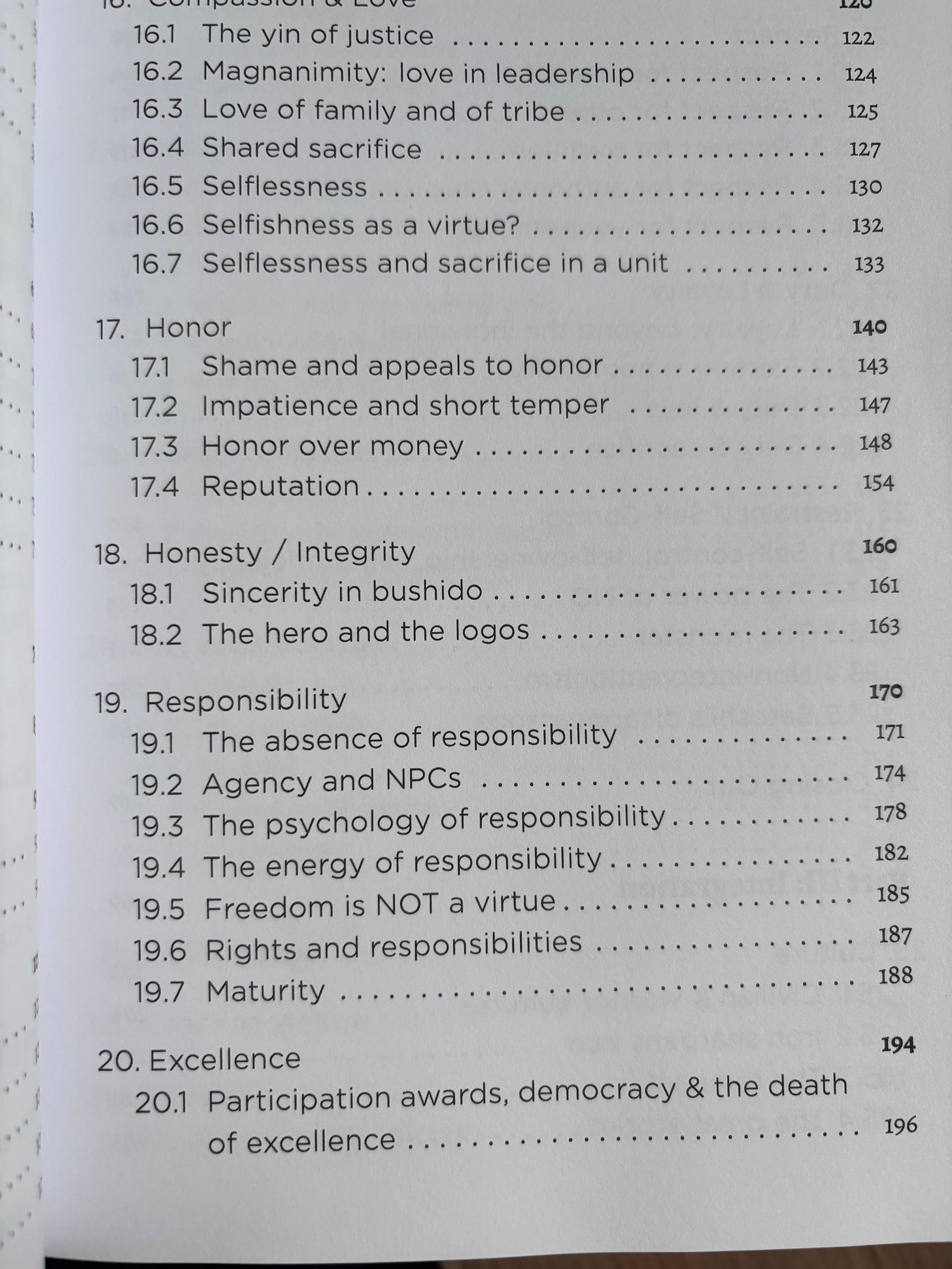
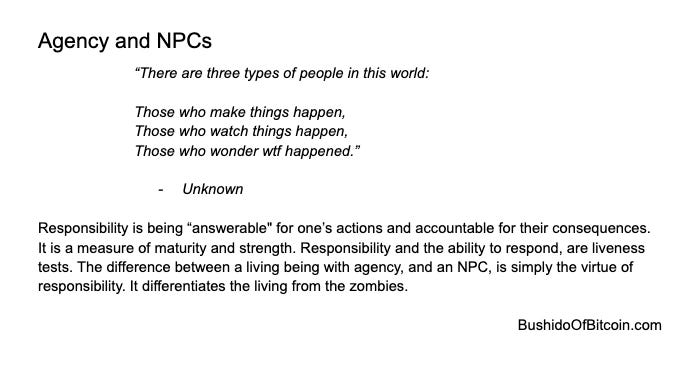
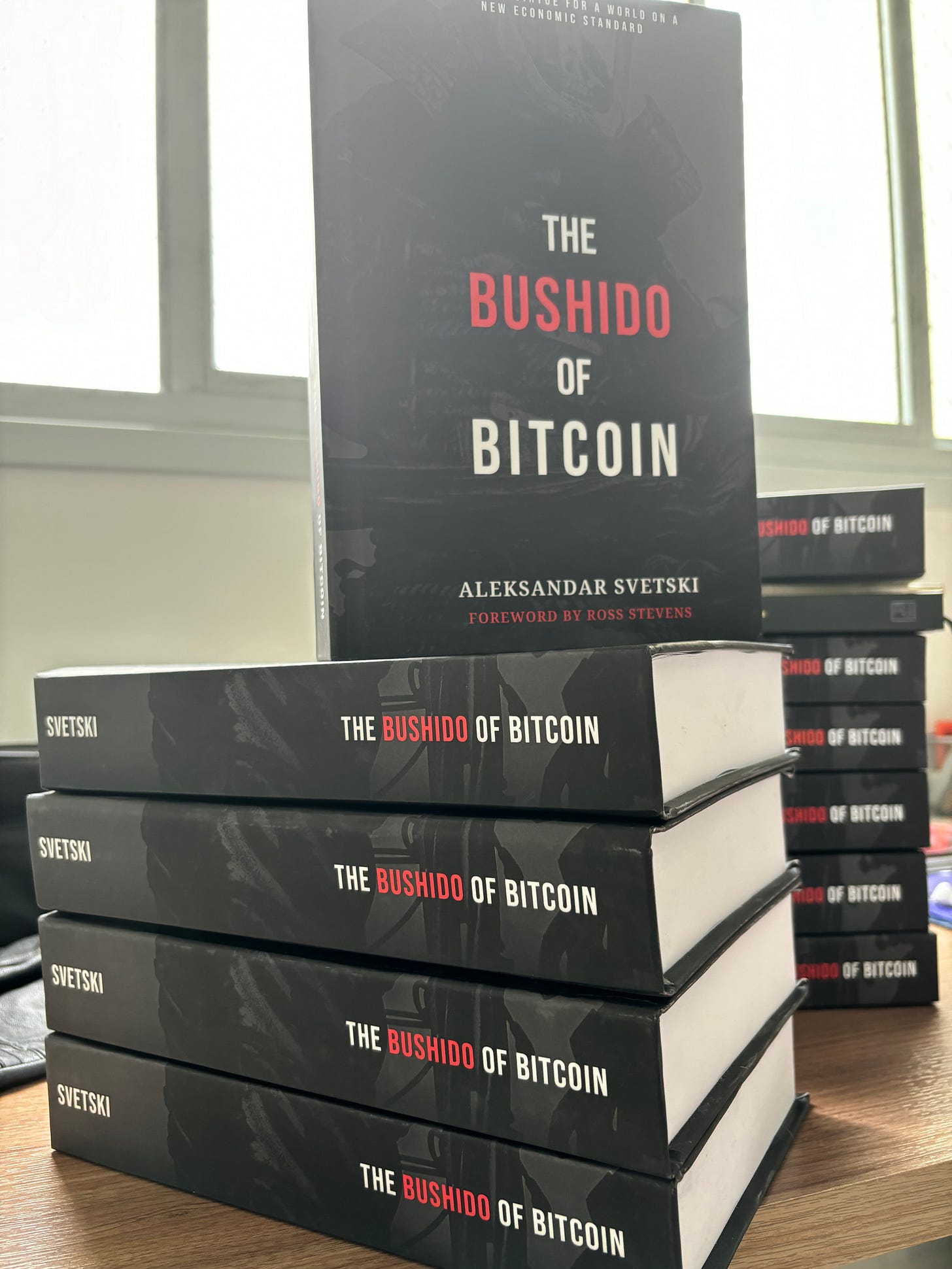
Thank you for this. I just bought your book, so haven't read it yet. I addressed this problem in my book from the standpoint of defining freedom correctly as responsibility rather than as absence of rules. I like the way you explain it better.
Excellent piece! Well done.
I have for a while been thinking about the positive and negative freedoms that Isaiah Berlin wrote about, Freedom from, and Freedom to. Your description of freedom as a virtue achieved by making choices is a very good one.